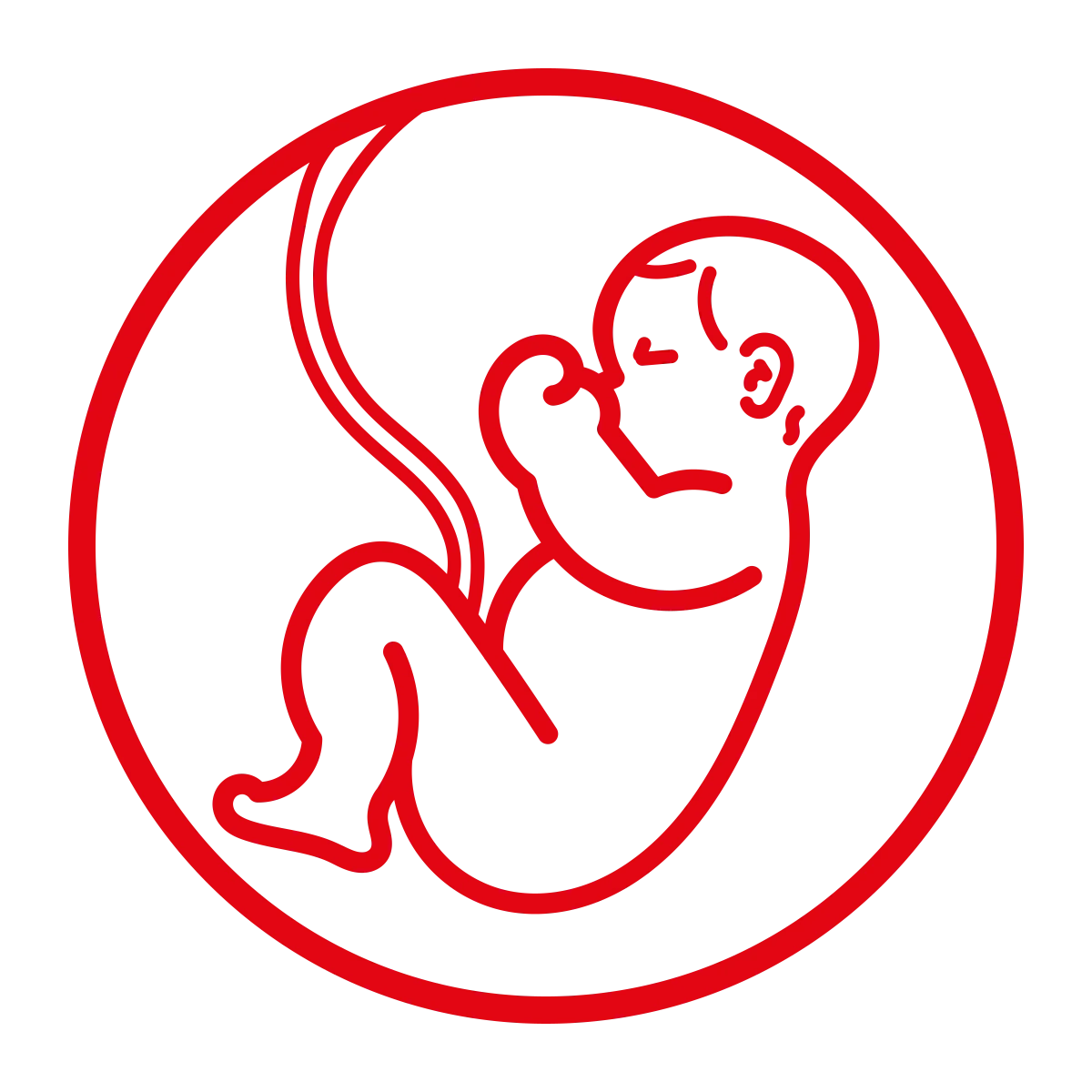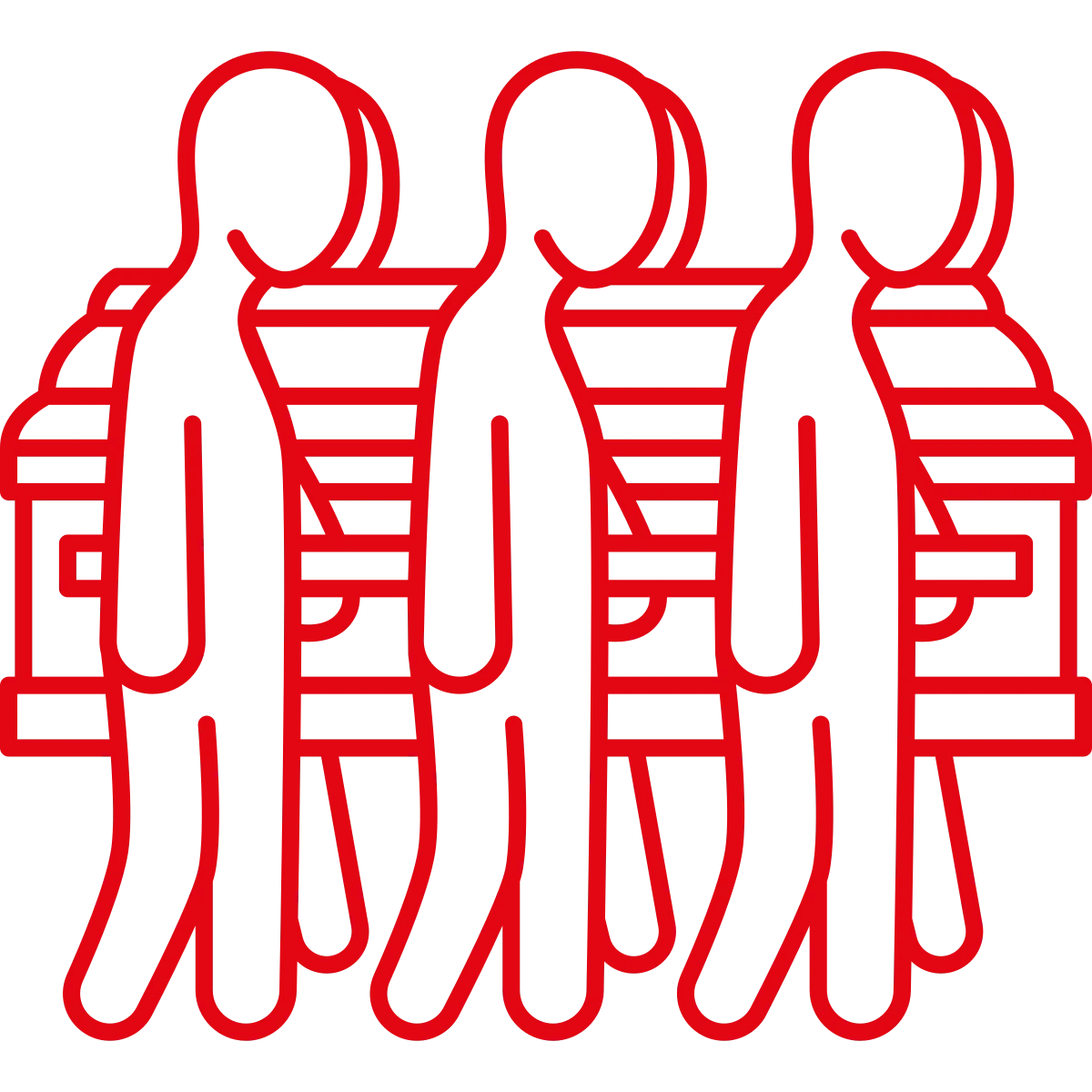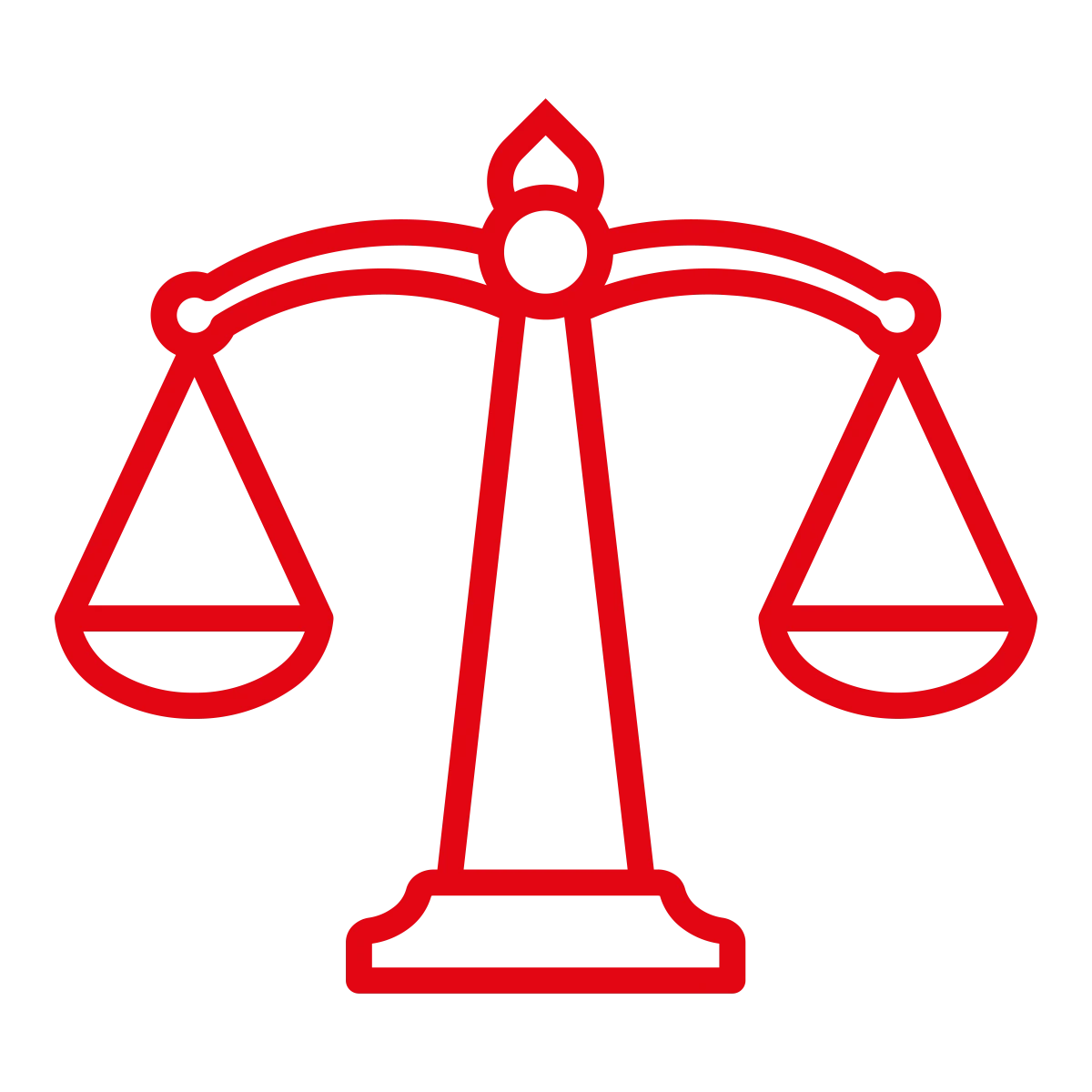Glossary of Legal Terms
Courts and lawyers use a variety of legal terms with specific meanings in the civil justice system. The following is a glossary of commonly-used civil-law terminology.
Action
The word “Action” in legal terminology refers to a legal action, which is a judicial proceeding, or law suit, brought by one party against another.
Actionable
Something that is considered Actionable under the law is an act or failure to act that the law sees as a wrong done by one party to another and for which the law provides some form of remedy for the person injured by the act or omission.
Act or Omission
An Act is the doing of something, while an Omission is the failure to do something. When someone has a duty under the law to take particular actions or to refrain from taking particular actions and fails to fulfill that duty, that person may be found liable for the injuries sustained by another person as a result of such an Act or Omission.
Admissible
The word Admissible is generally used in reference to testimony or other legal evidence. Strict laws regarding what evidence may be presented at trial provide that some evidence is admissible (i.e., may be presented) while some evidence is not (i.e., will be excluded).
Adverse Party
An Adverse Party is someone whose interests are contrary to those of another party in a case. Plaintiffs and Defendants are adverse parties in any lawsuit.
Affirmative Defense
An Affirmative Defense is a particular type of defense that may be raised by someone alleged to have committed a tort or to have engaged in other actionable behavior. Examples of affirmative defenses to civil claims filed against a defendant include assumption of risk, contributory negligence, and estoppel.
Appeal
An Appeal in a civil action may be brought by a party who loses a case in a lower court (such as a trial court or lower appellate court). The party taking the appeal (the appellant) asks the appellate court to review and reverse the decision of the lower court, which was in favor of the winning party (who is now the appellee).
Appellant
An Appellant is a party who appeals a decision that was entered in favor of another party in a lower court. The appellant may have been either the plaintiff or the defendant in the trial-court action.
Appellate Court
An Appellate Court is a court that is higher in authority than a lower court and has the power to review certain decisions of a lower court. Appellate courts may exist at more than one level, so that the lowest appellate court has authority over a trial court, and the highest appellate court has authority over the lower appellate courts in a particular jurisdiction.
Appellee
An Appellee is a party who won a case in a lower court and against whom an appeal is taken by the losing party, or appellant. The appellee may have been either the plaintiff or the defendant in the trial-court action.
Attractive Nuisance
An Attractive Nuisance is a condition, structure, or object on someone’s land that is dangerous to the safety of children but that attracts children to come onto the landowner’s property. The owner of land that contains an attractive nuisance may be held liable, under certain circumstances, for injuries sustained by children while on the landowner’s property.
Bench Trial
A Bench Trial is the trial of an action that is decided by a judge rather than a jury.
Beyond a Reasonable Doubt
In criminal actions, the prosecutor of a crime must submit proof Beyond a Reasonable Doubt that the defendant committed the crime in order to convict the defendant of the crime with which the defendant has been charged. This is the most difficult level of proof to meet and requires a jury to acquit (or find the defendant innocent) if any reasonable doubt exists regarding the defendant’s guilt. A reasonable doubt goes beyond the mere possibility that exists in every case that the defendant may be innocent, however. The doubt must be real rather than imagined and must be a doubt that a reasonable juror would have as a result of the evidence or lack of evidence presented at trial.
Proof beyond a reasonable doubt is never required in a civil case. In most civil cases, proof by a preponderance of the evidence is required. In some civil cases, proof by clear and convincing evidence will be required.
Breach of Contract
A Breach of Contract is the failure of one of the parties to a contract to perform some or all of the obligations agreed to under the contract.
Breach of Duty
A Breach of Duty is the failure to perform a duty that a person is legally obligated to perform.
Breach of Warranty
A Breach of Warranty is the breaking of a certain type of guarantee or promise, known as a warranty. A warranty may be a statement that something is true and a breach of that warranty may occur if that something is, in fact, not true. A warranty may be part of a contract that was entered into by two or more parties. It may also be a promise or guarantee that is considered to go along with a product. In that case, the promise or guarantee is made to anyone who uses the product, even if no contract was made between the manufacturer and the user.
Burden of Proof
The Burden of Proof in a civil action is the responsibility on the part of a particular party to prove certain aspects of a claim or cause of action. The burden of proof may include the responsibility of providing sufficient evidence of the existence or truth of certain facts that are in issue in a case or of establishing all of the elements of a cause of action. The level of proof required to meet a burden of proof will depend upon the type of action that has been brought. Proof by a preponderance of the evidence, by clear and convincing evidence, or (in a criminal case) beyond a reasonable doubt may be required.
Case Law
Case Law is law that is created through the written opinions of judges as opposed to law that is created through statutes or other means.
Caveat Emptor
Caveat Emptor is a Latin term that means “Buyer, beware.” Caveat emptor is a rule that applies to sales of certain goods and provides that the buyer of those goods bears the responsibility of examining the goods to see if they are suitable for purchase and that the buyer must bear the loss of purchasing something the buyer is dissatisfied with after the purchase.
Causation
Causation is a necessary element of proof in any negligence, intentional tort, or product liability action. A plaintiff must establish causation by proving that the actions or inactions of the defendant (or the defect in a product) were a cause of the injuries sustained by the plaintiff.
Cause of Action
A Cause of Action is something that may entitle a plaintiff to a legal remedy in a court of law or a legal theory on which a lawsuit is based. A cause of action exists when the law provides for a plaintiff’s right to sue and seek compensation (or another remedy) when certain facts or circumstances exist.
Chain of Distribution
The Chain of Distribution is a term used with respect to a product that has been alleged to be defective in a product liability action and refers to the control over a product from the time it is designed to the time it is sold to a consumer. Designers, manufacturers, manufacturers of a product’s component parts, wholesalers, distributors, suppliers, assemblers, and packagers of a product may all fall within a product’s chain of distribution. Under product liability law, anyone in the chain of a product’s distribution may be held liable for injuries sustained by a plaintiff that were caused by a defect in the product.
Civil Law
Civil Law is law that is concerned with the rights of individuals to seek civil remedies in the courts for injuries caused to them by another. This is distinguished from criminal law, which involves actions brought by the state or federal government rather than by individuals and which are intended to punish and prevent harms to society as a whole.
Clear and Convincing Evidence
Clear and Convincing Evidence is a level of proof required by plaintiffs in certain civil actions, such as fraud. The clear and convincing degree of proof is greater than a preponderance of the evidence but less than proof beyond a reasonable doubt. While proof by a preponderance of the evidence only requires proof that something is more likely than not to be true, proof by clear and convincing evidence requires proof that something is highly more probable to be true than untrue.
Claim
A Claim is a demand by someone who has suffered an injury for compensation (or another legal remedy) from the person or entity that is alleged to have caused the injury. A claim is often considered to by synonymous to a cause of action, though a cause of action may contain more than one claim.
Common Law
Common Law is synonymous with Case Law, and is the law created through the reported (published) opinions of judges at the conclusion of a case.
Comparative Negligence
Comparative Negligence is a legal doctrine that measures the percentage of negligence contributing to a party’s injury that is attributable to each party in a case, including the person who was injured. A plaintiff will usually be prevented from recovering damages in a case in which the plaintiff’s percentage of fault is greater than the defendant’s. If the plaintiff’s percentage of negligence (fault) is less than the defendant’s, however, the plaintiff may recover damages from the defendant, but the amount of damages the plaintiff may recover will usually be reduced by the percentage of damages for which the plaintiff was at fault.
Compensatory Damages
Compensatory Damages are damages that compensate a plaintiff (a person who sues someone in a civil action) for the actual losses the plaintiff has suffered. They are intended to come as close as possible to giving the plaintiff the monetary value of what was lost as a result of the defendant’s actions.
Consideration
Consideration is a term used in contract law and is one of the elements required for an enforceable contract. Consideration is the promise given by one party to a contract to do something for the other party. It is the thing that induces the party receiving the consideration to enter into the contract. Consideration may also be a promise to refrain from doing something, when the refraining is seen as something of value to the other party.
Constitutional Right
A Constitutional Right is a right guaranteed to United States citizens under the United States Constitution.
Contract
A Contract is an agreement between two or more parties (individuals or entities) that creates an obligation by each to do or refrain from doing something for the other’s benefit. Contracts may be oral or in writing, though certain contracts, such as those involving the sale of land, must be in writing to be enforceable.
All contracts must contain certain elements to be enforceable: 1) Competent parties (parties of legal age and ability to enter a contract), 2) competent subject-matter (something not prohibited by law as a subject for contract), 3) legal consideration (something given in exchange for something else), 4) mutuality of agreement (all parties voluntarily agree to the contract’s terms), and 5) mutuality of obligation (all parties incur some sort of obligation under the contract).
Constructive Notice
Constructive Notice is not actual notice of something but is notice that is implied or attributed to someone by the law. For example, the publishing of an announcement in certain legal newspapers that a person has been left something in someone’s will may be considered constructive notice to the person of the facts contained in the newspaper announcement even if the person never reads the announcement or learns of its existence. The law will consider the person to have been notified through the constructive notice of the newspaper announcement.
Contributory Negligence
Contributory Negligence is negligence on the part of a plaintiff that combined with the negligence of the defendant to cause the plaintiff’s injuries.
Cross-examination
Cross-examination is the questioning of a witness or party at a trial, hearing, or deposition by the attorney representing the party whose interests are contrary or opposed to the interests of the witness or party being examined.
Damages
Legal Damages are compensation (usually in the form of money immediately paid or owed) that may be awarded to an individual who has suffered a legally compensable loss or injury to his person, his property, or his legally recognized rights. Damages may be compensatory or punitive.
Decedent
A Decedent is a person who has died.
Declaratory Judgment
A Declaratory Judgment is a particular type of action in which a plaintiff requests a declaration or official statement regarding certain rights of the plaintiff but does not request any compensation. For example, an insurance company may file a declaratory action requesting a determination that it is not required to defend a particular individual under certain specified circumstances.
Defective Products
Defective Products are products that contain defects as that term is defined in product liability law. Under product liability law, a product may be defective because it was defectively designed, defectively manufactured, or made unreasonably dangerous as a result of the manufacturer’s or seller’s failure to warn consumers of the product’s dangers.
Defendant
A Defendant in a civil action is a person (or entity such as an organization, corporation or other business, or school) who is sued by another individual or entity (called the plaintiff).
Defense
A Defense is something raised (presented) by a party in a lawsuit as a reason that an opposing party’s claim should be denied or that the remedy sought by the opposing party should be diminished.
Deliberation
Deliberation is the term for a jury’s consideration (at the conclusion of a trial) of the evidence presented at trial and its determination of guilt or liability of the defendant.
Deposition
Depositions may be either Discovery Depositions or Trial Depositions. A Discovery Deposition is one of the tools of discovery used before the trial of a case to gather evidence relevant to the issues in a case through the taking of testimony from a party or witness outside of court and prior to any trial that might be held. A Trial Deposition is testimony taken from a party or witness who is unavailable or otherwise unable to appear in court. The testimony taken at a Trial Deposition may be read into the record at trial and considered evidence to the same extent as testimony given by a witness at trial.
Design Defect
A Design Defect is a defect in a product that occurs as a result of the way a product is designed or intended to be made. For example, a child’s crib that is designed with slats far enough apart to allow a baby’s head to fit through may be determined to have a design defect.
Direct Examination
Direct Examination is the questioning of a party or witness at a trial, hearing, or deposition by the party whose interests are not opposed to the interests of the party or witness being examined.
Direct Liability
Direct Liability is legal fault or responsibility for someone’s injuries that results from the actions or inactions of the party who has been found directly liable rather than from the actions or inactions of someone else. For example, the negligence of an employee of a daycare center that results in an injury to a child may result in the employee’s direct liability for the child’s injuries. The daycare center itself may also be held liable, under certain circumstances, for the negligence of the center’s employee. The daycare center’s liability in such a situation would be indirect, however, rather than direct.
Discovery
Discovery is the process of obtaining evidence for trial through depositions, interrogatories, requests for the production of documents and/or things, and requests for admissions.
Discovery Rule
The Discovery Rule is a rule that affects the time when a statute of limitations begins to run in certain cases. In many cases, the period of time in which an action must be filed begins when the plaintiff has sustained an injury. In actions in which the discovery rule applies, the time in which the action must be filed does not begin until the plaintiff discovered (or reasonably should have discovered) that he or she had suffered an injury.
Distributor
A Distributor of a product is a wholesaler of the product. A distributor or wholesaler buys a product from the product’s manufacturer and sells it to a retailer (someone who sells directly to a consumer). A distributor may be found liable in a product liability action for the injuries sustained by a plaintiff as a result of a defect in the product.
Duty of Care
A Duty of Care is the responsibility for someone’s safety and well-being that is imposed by law on a person or entity. The duty generally arises as a result of a relationship between the party who owes the duty of care and the party to whom the duty is owed and is usually described as the duty to exercise reasonable care under the circumstances.
Elements of a Case
The Elements of a case or cause of action are the things that must be proved by a plaintiff in order for the plaintiff to win the case brought by the plaintiff against a defendant or defendants.
Estoppel
Estoppel means prevention. Under certain circumstances, a party to a lawsuit may be estopped (prevented) from raising a defense or making a particular claim as a result of something that party has said or done. The estoppel is based on the principle that it would be unfair (given what the party has said or done) to allow that party to raise the defense or make the particular claim.
Evidence
Evidence is the testimony, written documents, and other means of proof submitted at a trial to prove the existence or non-existence of a fact that is material (important) to the determination of an issue in the case.
Expert Testimony
Expert Testimony is opinion testimony given by someone who has specialized knowledge, education, and/or experience regarding the subject on which he or she is giving an opinion.
Failure to Warn Defect
Under product liability law, a product may be found to be defective as a result of the manufacturer’s or seller’s Failure to Warn of the product’s dangers. The failure to warn of certain dangers is considered to make the product unreasonably dangerous for the consumer’s use and, therefore, defective.
Federal Law
Federal Law is law that is created by the United States Constitution, federal acts, statutes, and regulations, and federal case law.
Fraud
The word Fraud has a specific meaning under the law that may be different from most people’s understanding of the word. A defendant may be considered to have committed Fraud against a plaintiff only under certain circumstances. The elements required to prove a claim of Fraud are 1) that the defendant made a false statement to the plaintiff (or otherwise led the plaintiff to believe something that was not true), 2) that the defendant intended for the plaintiff to believe and rely on the defendant’s misrepresentation of the truth, 3) that the plaintiff took some action in reliance upon the defendant’s misrepresentation of the truth, and 4) that the plaintiff suffered damages as a result of relying on the plaintiff’s misrepresentation of the truth.
Gross Negligence
Gross Negligence is negligence that is a greater breach of a duty of care than occurs in the commission of ordinary negligence (commonly referred to simply as “negligence”). Gross negligence is the failure to take even the slightest care for someone’s safety.
Hearing
A Hearing is a proceeding that takes place in court and in which evidence may be given and testimony may be heard on some, but not all, the issues relevant to a case.
Holding
A Holding is a ruling or decision of a court.
Hung Jury
A Hung Jury is a jury that was unable to agree upon a verdict (decision) regarding the guilt or liability of a defendant.
Immunity
Immunity is protection from prosecution or liability for certain acts or omissions that would otherwise be actionable under the law.
Inference
An Inference is a conclusion that is arrived at on the basis of evidence of something else. The thing inferred is logically concluded to be true as a result of the establishment of other facts.
Injunction
An Injunction is a legal remedy preventing a defendant from engaging in certain conduct or ordering the defendant to stop engaging in certain conduct.
Injury
An injury, in legal terms, is a loss, wrong, or damage done by one party to another for which the law provides a remedy.
Intentional Tort
A tort is a legally recognized wrong, other than a breach of contract, committed by one person against another for which the law provides a remedy in the form of damages (compensation). The person who commits a tort must owe a duty to the person against whom the tort is committed, and the person against whom the tort is committed must suffer an injury as a result. An Intentional Tort is one that is committed consciously, knowingly, and deliberately rather than negligently.
Interrogatories
Interrogatories are a set of written questions that are sent to and must be responded to by parties who may have knowledge of something relevant to a case.
Invitee
An Invitee is someone who is present on someone’s property through an express or implied invitation by the property owner. The invitee may be invited as a member of the public or for the purpose of conducting some sort of business that involves the property owner.
Judgment
A Judgment is a final decision made by a court at the conclusion of a lawsuit.
Jurisdiction
The word “Jurisdiction” has more than one meaning in the context of the law. Jurisdiction may mean the power of a court to do something or to hear and decide certain types of cases. Jurisdiction may also mean the geographic area (such as a particular state) in which a particular court hears and decides cases.
Jury Trial
A Jury Trial is a trial in which a jury rather than a judge makes decisions regarding the factual issues in a case.
Legal Custody
Legal Custody is the responsibility of and control over something or someone, according to law. A person may be granted the legal custody of a child, for example, through an order of a court.
Legal Entity
An entity is something that has an independent and identifiable existence, such as an organization, partnership, or corporation. A Legal Entity is an entity recognized by the law as something (other than an individual person) that can make decisions and take actions and that can sue and be sued.
Legal Guardian
A Legal Guardian is a person who has been given the right and responsibility under the law to care for another person. A child’s legal guardian may be the child’s parent, foster parent, adoptive parent, or anyone to whom a court has granted custody of the child.
Liability
Liability in a civil action is similar to guilt in a criminal action. If a party is “found liable” for a plaintiff’s injuries, for example, the party is considered to be responsible for the plaintiff’s injuries and the damages (those allowed to be compensated under the law) that were suffered by the plaintiff as a result.
Licensee
A Licensee is someone who is given implied or express consent by a property owner to be present on the owner’s property and who is given such permission for a reason that benefits the licensee rather than the property owner.
Manufacturer
A Manufacturer is a person or legal entity that makes a product.
Manufacturing Defect
A product may contain a Manufacturing Defect under product liability law if the product contains a defect that was created during the manufacturing stage. The product may have been safely designed, in other words, but was unsafely put together after it was designed. If a product was designed to be safely made with certain materials, for example, and the manufacturer used inferior materials to make the product, the product may be found to contain a manufacturing defect.
Medical Malpractice
Medical Malpractice is the commission of negligence by a physician in the physician’s care of a patient 1) when the physician owes a duty of care to the patient, 2) breaches the duty of care owed to the patient, 3) causes injury to the patient as a result of the breach of duty, and 4) the injuries are of the sort that are compensable under the law through the payment of damages. Medical malpractice may be committed by nurses and other medical professionals in addition to physicians.
Misrepresentation
A Misrepresentation is an untrue statement of fact.
Mistrial
A Mistrial is a trial that is stopped before its conclusion and determined to have no effect. A mistrial can be declared for many reasons, including uncorrectable errors that are likely to affect the final outcome of the trial, misconduct, or a hung jury. When a mistrial is declared, none of the holdings or findings that occurred during the trial will have any effect in a new trial that takes its place.
Negligence
Negligence is the failure to use ordinary care in the exercise of a duty of care owed to someone that results in injury to the person to whom the duty is owed. In order to establish negligence on the part of a defendant, a plaintiff must prove 1) that the defendant owed a duty of care to the plaintiff, 2) that the defendant breached (or failed to fulfill) the duty of care, 3) that the plaintiff suffered an injury as a result of the defendant’s breach of the duty of care, and 4) that the plaintiff’s injuries are of the sort that are legally compensable under the law (i.e., the sort for which the law will allow a payment of compensation for the costs associated with an injury).
Personal Property
Personal Property is property (something owned by someone) other than real estate (buildings or land), such as cars, clothing, and jewelry.
Personal Representative
A Personal Representative is someone who has been named in another person’s will as the person who will settle and handle the estate of the person who wrote the will after that person has died.
Plaintiff
A plaintiff is a person (or entity) who sues another person or entity (called the defendant) in a civil action.
Pleadings
Pleadings are written documents that are filed with a court at the beginning of a law suit, and include a Complaint (which contains the allegations and claims made by the plaintiff), an Answer (which contains the response of the defendant to the plaintiff’s complaint), and other related documents.
Precedent
A Precedent is a written and published (reported) opinion of a court that carries the force of law in later, similar cases.
Premises Liability
Premises Liability is a body of law that holds the owner of property liable for injuries sustained by someone while on the owner’s property, under certain conditions. Whether the owner is liable for the person’s injuries may depend upon whether the injured person was an invitee, licensee, or trespasser at the time the injuries were sustained.
Preponderance of the Evidence
A Preponderance of the Evidence is the “great weight” of the evidence, or, in other words, sufficient evidence to establish that something is more likely than not to be true.
Presumption
A Presumption is a law of evidence that presumes the existence of a fact on the basis of proof of another fact. Once a presumption arises in favor of one party (i.e., once a fact is presumed), the other party has the burden of disproving the presumed fact to avoid having the presumed fact considered established or proved.
Product Liability
Product liability is an area of law that involves the recovery of damages from the manufacturers of products whose defects have been found to have caused injuries to a plaintiff. The defects may occur in the manufacturing or design stage of the product or as a result of the manufacturer’s or seller’s failure to warn of defects that are inherent, or natural, to a product.
Proximate Cause
Proximate Cause is a type of cause of an injury to a plaintiff. If a plaintiff would not have been injured if “something” had not happened, that “something” is a proximate cause of the plaintiff’s injury.
Punitive Damages
Punitive, or exemplary, damages are damages intended to punish rather than compensate and are awarded in addition to compensatory damages. Punitive damages may be awarded, for example, when the defendant’s actions were intentional, reckless, malicious, or fraudulent.
Real Property
Real Property is land or structures on land, also known as real estate
Reasonable Care
Reasonable Care is the amount of care a person of ordinary prudence (wisdom and carefulness) would take under the same or similar circumstances.
Recklessness
Recklessness is the willful, wanton, or intentional disregard of the high likelihood of serious harm to another that may result from the conduct of a person or entity.
Release
A Release is the giving up of a right or claim that someone could have enforced against someone else.
Remedy
A Remedy in a civil action may be a payment of damages by a defendant to a plaintiff, an injunction (an order by a court to a defendant to take an action or refrain from taking an action), or a declaratory judgment (a statement by a court regarding the application of a law to the particular facts of a case).
Respondeat Superior
Respondeat Superior is the liability of an employer for the wrongful acts of the employer’s employees that occurred in the scope of the employee’s employment.
Revoke
To Revoke something is to cancel it, reverse it, or otherwise make it invalid.
Scope of Employment
An employee acts within the Scope of Employment when the employer has the right to exercise some degree of control over the employee’s actions and when those actions are part of or in aid of the duties of the employee’s job.
Sovereign Immunity
Sovereign Immunity is immunity from liability for certain wrongs granted to federal and state governments and other governmental entities, such as cities and towns. Publicly owned entities, such as public schools, are also granted such immunity under certain circumstances.
State Law
State law is law that applies to a particular state and that is derived from state constitutions, state statutes, and state common (or case) law.
Statute of Limitations
A Statute of Limitations is a law that places a limit on the time in which a particular law suit may be filed. For example, certain actions must be brought within two years of the time an injury is sustained, while others may be brought within two years after an injury is discovered. In some cases, such as when the injured person is a minor at the time the injury occurs, the running of the time period may be put on hold (tolled) until the minor becomes an adult.
Statutory Law
Statutory Law is law that is created through the enactment of state or federal statutes rather than through case law or constitutional law.
Strict Liability
Strict Liability is a form of liability (or responsibility for harm) imposed upon defendants without a need by the plaintiff to prove that the defendants were negligent. Strict Liability is generally applied in product liability actions against a manufacturer of a defective product and against anyone who sold or distributed the product. If the product contains a defect and the defect caused an injury to the plaintiff, the defendants will be held liable, or responsible, for the plaintiff’s injuries even if the defendants took the greatest care (i.e., were not negligent) in designing, manufacturing, selling, advertising, or packaging the product.
Subpoena
A Subpoena is a court order commanding someone to do something. Subpoenas often order someone to appear and give testimony at a specified time and place or to appear and produce documents or other things.
Subpoena Duces Tecum
A Subpoena Duces Tecum is a type of subpoena that commands someone to appear and produce documents and/or things.
Summary Judgment
A Summary Judgment is an order entered in favor of one party to a case before the entire trial has been held. The order may relate to the entire case or to a single issue in the case.
Supervisor
A Supervisor is someone who has authority over another person. Managers who oversee the work of other employees in a business may be considered supervisors of those employees.
Survival Action
A Survival Action is an action brought on behalf of someone who has died and who had the right, while alive, to bring an action against someone who caused that person injury. The right of that person to bring the cause of action is said to “survive” that person’s death.
Testimony
Testimony is an oral presentation of evidence by a witness who is under oath to tell the truth.
Tort
A tort is an injury, other than a breach of contract, for which the law provides a remedy in civil court. Tort law is a major category of civil law. Every tort action has three elements that must be proved for the plaintiff to succeed in recovering damages: 1) there must be a legal duty of care owed by the defendant to the plaintiff, 2) the defendant must have breached that duty, and 3) the defendant’s breach of duty must have been a proximate cause of damages suffered by the plaintiff.
Trespasser
A Trespasser is someone who has come onto someone else’s property without express or implied permission.
Vicarious Liability
Vicarious Liability is indirect liability for someone else’s wrongful conduct. The employer of a negligent employee who injures someone in the course of the employee’s employment may be held vicariously liable for the injuries caused by the negligence of the employee.
Voir Dire
Voir Dire is the process of choosing a jury for a civil or criminal trial. During voir dire, the judge and the attorneys for each party may question prospective jurors, and may object to the choosing of particular jurors under certain circumstances.
Waiver
A Waiver is the voluntary giving up of a right.
Warranty of Fitness
A Warranty of Fitness is a shorthand term for an implied warranty (or promise) of the fitness or suitability of a product for a particular purpose. An implied warranty of fitness for a particular purpose occurs when a buyer asks a seller for a particular product to fulfill a particular purpose and the seller sells a product to the buyer in response to the request. In making such a sale in response to the buyer’s request, the seller is implying that the product is fit for the purpose the buyer intends for the product’s use.
Warranty of Merchantability
A Warranty of Merchantability is an implied warranty (or promise) by a seller of a product that the product is what a buyer would reasonably expect it to be and that it works as the buyer would reasonably expect it to work. For example, when a store sells a television to a buyer, the store is implying a promise that the television works as a buyer reasonably expects a television to work.
Witness
A Witness is a non-party in a case who can testify to certain facts that he or she has knowledge of.
Wrongful Death
Wrongful Death is the name of an action that may be brought by the survivors of someone who has died as a result of injuries caused by an act or omission (failure to act) of a defendant. The plaintiffs in a wrongful death action are usually the immediate family members of the person who has died as a result of the defendant’s negligence, intentional act, or defective product. The damages payable in a wrongful death suit are for the damages suffered by the plaintiffs as a result of the death of their family member.







